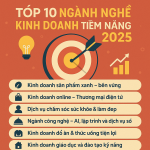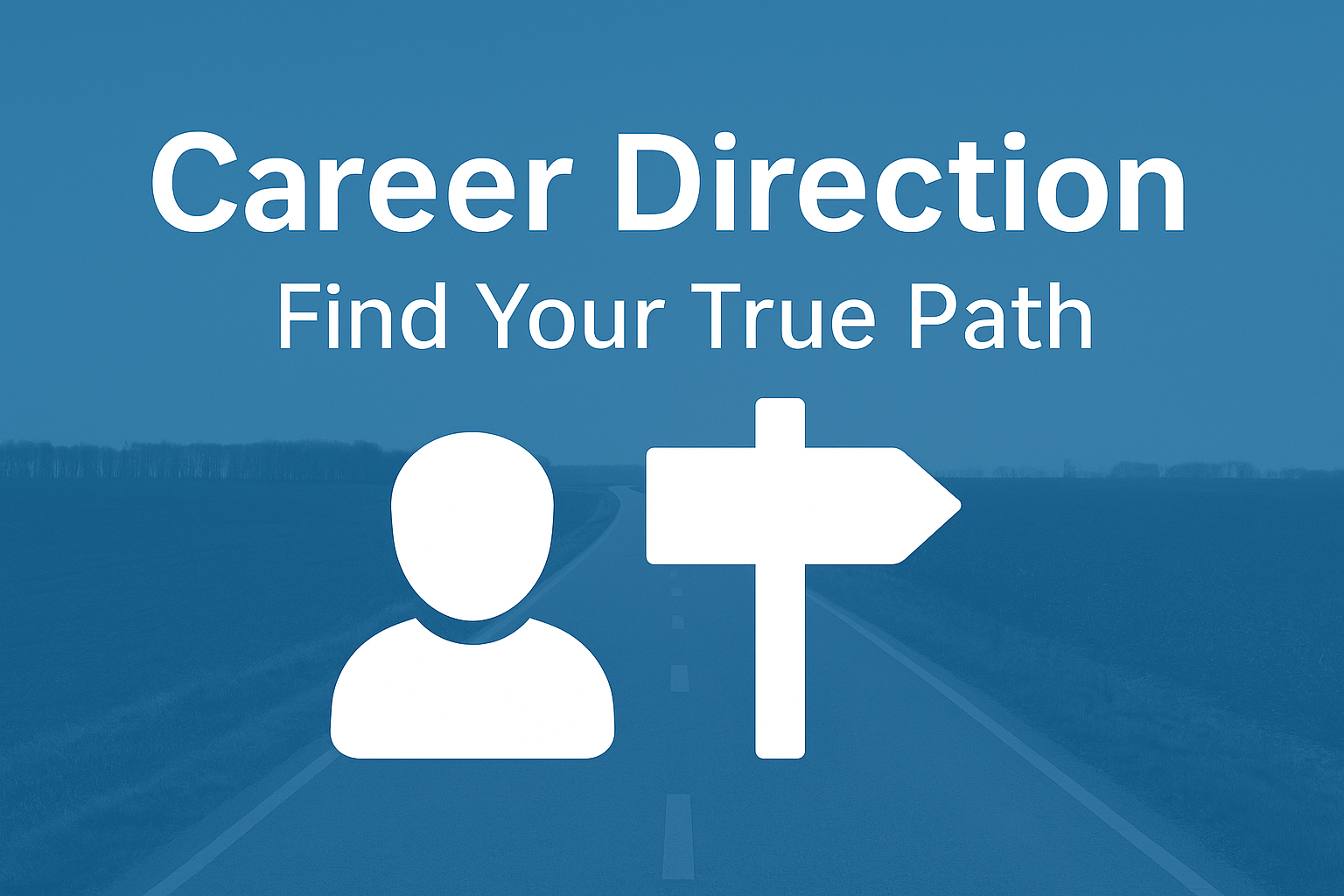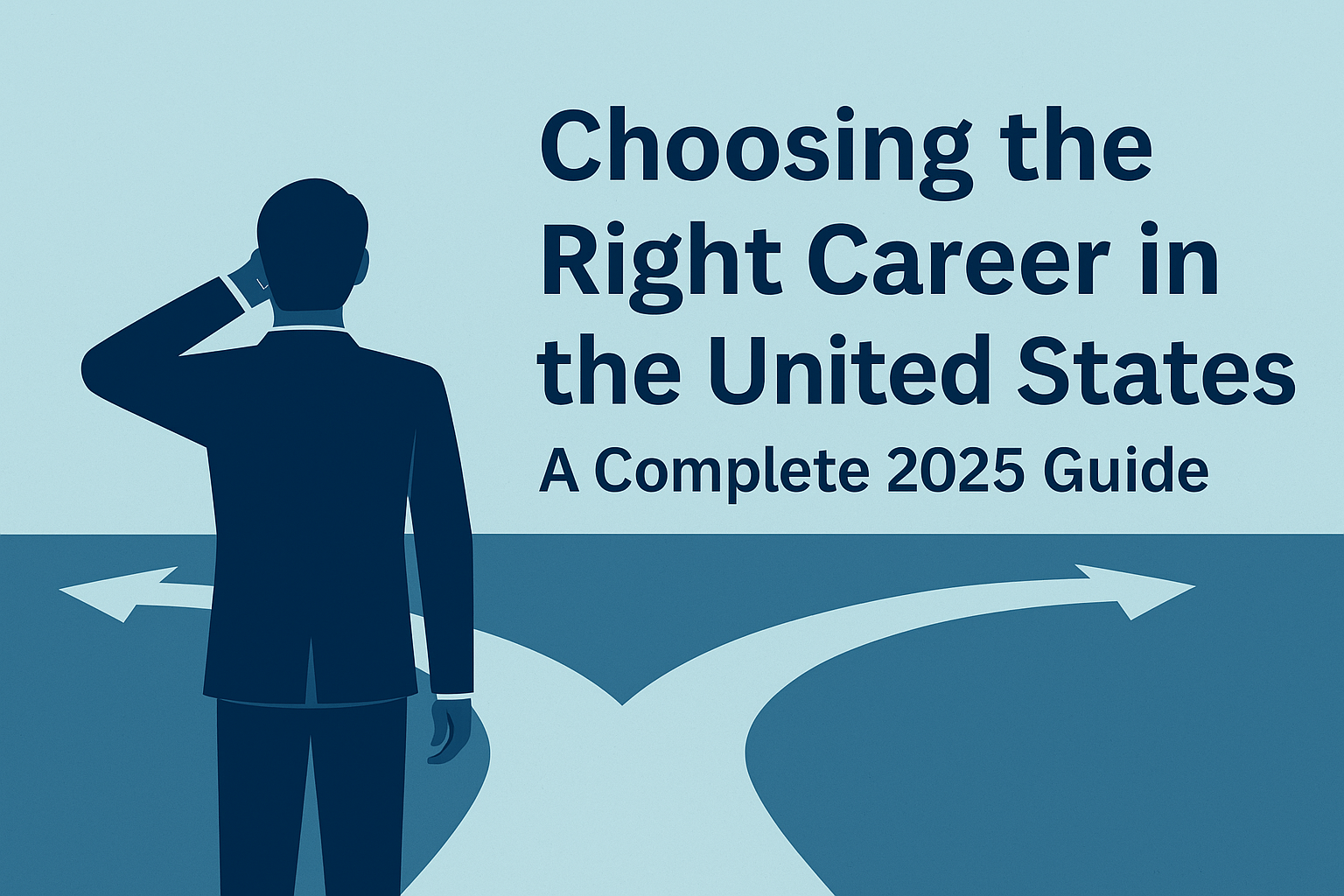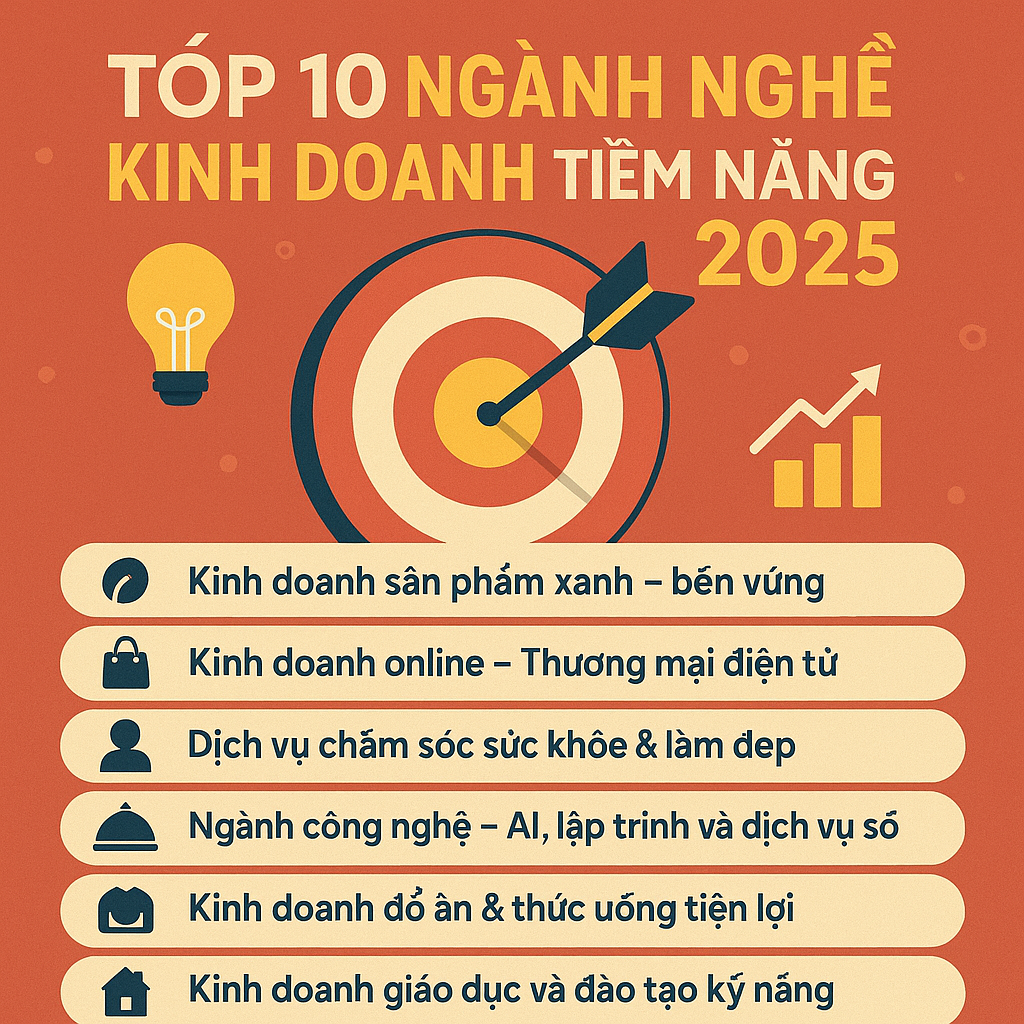Learn how to discover your true career direction with expert tips, self-assessment tools, and proven strategies to build a meaningful professional path.
🌱 1. What Is “Career Direction”?
Your career direction is the path you choose to follow throughout your working life — a combination of your goals, interests, strengths, and opportunities.
It’s not just about finding a job, but about creating a long-term vision that aligns with your personality and life purpose.
Think of your career direction as a compass that keeps you on the right track even when the job market changes. Without it, you might end up switching jobs frequently or feeling lost about what truly fulfills you.
💬 “Direction is more important than speed. Many people are going nowhere fast.”
See more.Life Purpose: The Ultimate Guide to Finding Meaning and Direction in Your Life
💡 2. Why Career Direction Matters
Many young professionals and students face the same problem:
They work hard but still feel unsatisfied because they never stopped to ask themselves — “Is this the right direction for me?”
Here’s why defining your career direction is crucial:
✅ 1. Clarity & Motivation
When you know your destination, you wake up with purpose. You no longer just “work for a paycheck” but for something meaningful.
✅ 2. Better Decision-Making
Career choices like what to study, where to work, or when to change jobs become easier when you know your long-term goals.
✅ 3. Faster Growth
Focused professionals develop faster. When your career path matches your strengths, you naturally perform better and get promoted quicker.
✅ 4. Work-Life Balance
Choosing the right direction helps you find roles that suit your personality and lifestyle, reducing burnout and stress.
🧭 3. Signs You Haven’t Found Your Career Direction Yet
If any of the following feels true, you might still be searching for your real direction:
-
You feel bored or unmotivated at work.
-
You often compare yourself with others’ careers.
-
You keep changing jobs every 6–12 months.
-
You don’t see a clear goal beyond your current position.
-
You work hard but feel unfulfilled or “stuck.”
If that sounds familiar, don’t worry — discovering your career direction is a journey, not a one-time decision.
🔍 4. How to Find Your True Career Direction (Step-by-Step Guide)
Finding your career direction isn’t luck — it’s a process of self-discovery and strategy.
Let’s go through the 6 essential steps:
See more. Finding Your Life Purpose: Building a Career That Truly Matters
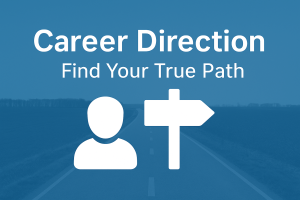
🔹 Step 1: Understand Yourself
Before looking at the job market, start by looking inward.
Ask yourself:
-
What am I naturally good at?
-
What kind of work makes me lose track of time?
-
What values do I care most about? (money, creativity, impact, freedom…)
👉 Use self-assessment tools like:
-
MBTI (Myers-Briggs Type Indicator)
-
Holland Code (RIASEC)
-
StrengthsFinder
These tools help identify your personality type and match it with careers where you can thrive.
🔹 Step 2: Define Your Career Goals
Without a goal, you’ll never know when you’ve arrived.
Set SMART goals (Specific, Measurable, Achievable, Relevant, Time-bound).
Example:
“I want to become a Marketing Manager in 5 years”
“I want to start my own tech company by age 30”
Goals give you direction and keep you accountable.

🔹 Step 3: Research Career Options
Explore industries and jobs that fit your strengths and goals.
Ask yourself:
-
Which careers align with my skills and interests?
-
What are the salary ranges and growth trends?
-
What qualifications are required?
Useful sources:
-
LinkedIn Career Explorer
-
Google Career Certificates
-
Job boards like Indeed, Glassdoor
🔍 Example:
If you love creativity and analytics → Digital Marketing
If you love problem-solving and tech → Software Engineering
If you enjoy helping others → Human Resources or Psychology
🔹 Step 4: Test and Explore
Don’t just plan — experiment.
Real experience is the fastest way to confirm your direction.
Try:
-
Internships or part-time jobs in your field of interest.
-
Volunteering to see what work energizes you.
-
Freelancing to explore different industries.
-
Networking events or career workshops to meet mentors.
Every experience gives you more clarity about what you like and what you don’t.
🔹 Step 5: Build Skills and Adapt
Once you identify your direction, start building the skills that matter most.
Examples:
| Career Direction | Core Skills to Learn |
|---|---|
| Marketing | SEO, Google Ads, Data Analytics |
| IT / Software | Python, Cloud Computing, AI |
| Business | Negotiation, Leadership, Project Management |
| Design | UI/UX, Adobe Suite, Creativity |
| Education | Communication, Pedagogy, Counseling |
The world changes fast — your career direction should evolve too.
Keep learning through online platforms like Coursera, Udemy, or Skillshare.
🔹 Step 6: Get Guidance from Mentors
One conversation with the right mentor can save you years of trial and error.
Look for:
-
Teachers or managers who understand your strengths.
-
Professionals already in the career you’re exploring.
-
Online mentorship programs (LinkedIn, GrowthMentor, etc.)
Ask them about:
-
Their career journey
-
What they wish they knew earlier
-
The skills that truly matter in the field
“A mentor is someone who sees your potential and helps you see it too.”
💬 5. Expert Insights: Common Mistakes When Choosing a Career Direction
Even smart people make these mistakes — avoid them early:
❌ 1. Choosing Based on Salary Alone
Money is important, but passion and purpose sustain you long-term.
A well-paid job that makes you miserable is not success.
❌ 2. Following Trends Blindly
Just because “AI” or “Data” is trending doesn’t mean it fits your personality.
Choose what you can see yourself doing happily for years.
❌ 3. Ignoring Personal Strengths
Your direction should build on what you’re naturally good at — not what’s popular.
❌ 4. Waiting for “Perfect Clarity”
You don’t need all the answers right now.
Take small, informed steps — clarity will grow through action.
🧱 6. How to Stay on the Right Career Path Once You’ve Found It
Finding direction is only the beginning — staying on track is equally important.
✅ Keep Learning
Every industry evolves. Update your skills regularly through courses, books, and workshops.
✅ Reevaluate Every 1–2 Years
Ask:
“Does this path still align with my goals and values?”
If not, adjust — your direction can evolve with your life stage.
✅ Network Consistently
Build relationships with people who inspire you. Opportunities often come through connections, not applications.
✅ Track Your Progress
Keep a journal or use apps like Notion or Trello to review what you’ve achieved and what’s next.

🌍 7. Career Direction in 2025: New Trends to Watch
The career landscape is transforming fast.
If you’re planning your direction for the next few years, keep an eye on these trends:
| Trend | What It Means for You |
|---|---|
| Remote Work | More flexibility, need strong self-discipline |
| AI and Automation | Focus on creativity & problem-solving |
| Gig Economy | Freelancers and side hustles rising |
| Sustainable Careers | Companies value green skills and social impact |
| Lifelong Learning | Continuous skill upgrades are essential |
👉 The future belongs to those who are adaptable and self-aware.
🧘 8. The Link Between Career Direction and Life Purpose
True career direction isn’t just about earning money — it’s about creating a meaningful life.
Ask yourself:
-
What kind of impact do I want to make on others?
-
What legacy do I want to leave behind?
When your career aligns with your life purpose, work stops feeling like a burden.
It becomes a way to express who you truly are.
“Success is not the key to happiness. Happiness is the key to success.” — Albert Schweitzer
🔑 9. Quick Summary – How to Find Your Career Direction
| Step | Action | Outcome |
|---|---|---|
| 1 | Self-assess your strengths & passions | Know what fits you |
| 2 | Set SMART career goals | Define a clear destination |
| 3 | Research options | Understand market trends |
| 4 | Try & explore | Gain real-world clarity |
| 5 | Build skills | Prepare for future success |
| 6 | Get mentorship | Learn from real experience |
🏁 10. Final Thoughts
Finding your career direction is not a one-time event — it’s a lifelong journey.
There will be detours, doubts, and moments of confusion. But as long as you keep exploring, learning, and adjusting, you’ll eventually reach a place that feels right.
💬 “The best career path isn’t found — it’s created.”
So take the first step today.
Reflect on your strengths, define your goals, and start building the future you deserve.
Your ideal career direction is waiting for you — one choice at a time.




